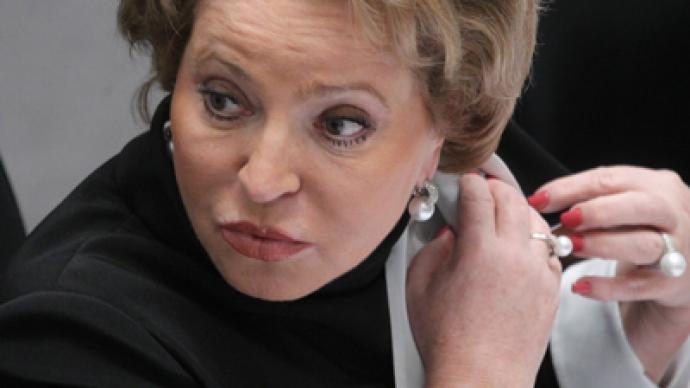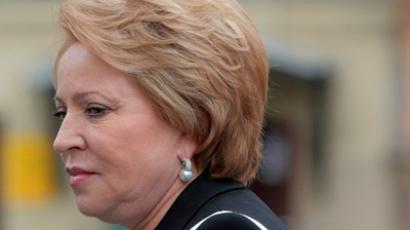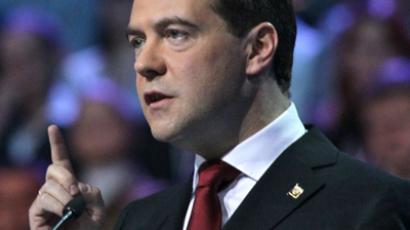Presidential envoys ‘obsolete’ – Matvienko

Valentina Matvienko, the speaker of Russia's Federation Council, has suggested abolishing the office of presidential envoy to the regions and introducing Ministers for Territorial Affairs instead.
Speaking on Monday at a session of Russia’s upper house, Matvienko said that the role of president’s plenipotentiary representatives in the regions had become obsolete. She said presidential envoys have played an important role in bringing regional law into line with federal legislation, as well as in fulfilling other tasks. However, “today the situation has changed.” Matvienko, the former governor of St. Petersburg, said representations of the Ministry for Regional Development should be set up. Or, alternatively, posts of ministers for affairs of the regions should be introduced. The Federation Council (upper house) chairwoman stressed such ministers must not interfere in the jurisdiction of regional authorities, cites Itar-Tass. She admitted that it is highly probable that not everyone would like the idea and other decisions are also possible. However, the fact is that the existing system is no longer efficient, Matvienko said. The post of presidential envoy – officially called “plenipotentiary representative” – was first introduced by decree of the then-president, Vladimir Putin. The country was divided into seven federal districts and an envoy was appointed to each of them. In 2010, President Dmitry Medvedev remapped the structure and an eighth district was established covering the North Caucasus.The role of the presidential envoy is to ensure that regional legislation is in accordance with Russian federal legislation and the constitution. The envoy also works on security and economic issues, and helps the government to better control what is happening in the regions and to address problems more effectively. Monday’s meeting of the State Council at the Kremlin was devoted to the decentralization of power – an idea that the leadership has long been pushing for as a step that would benefit the country’s economic development and help address social problems. President Medvedev suggested a differentiated approach to the regions as part of a redistribution of power. "While decentralizing power, we must remember that we live in a large country, in which regions differ by geography and the level of their economic development," he told the State Council meeting, as cited by Interfax.The head of state stressed that the regions need more scope to take efficient measures to improve living standards. "Such problems must be solved with full understanding of the short- and longer-term consequences. Possibly, we need a differentiated approach, depending on the readiness of particular regions to assume additional powers. We may start from pilot projects," Medvedev said. He underlined that there must be no formalism in improving inter-budget relations. Financial decentralization must provide regions with significant funds for full-fledged work.The president also suggested that the topic should be discussed with the public and business circles. Only after that should a “fully balanced decision” on the decentralization of power be made. Prime Minister Vladimir Putin, who was also present at the meeting, agreed that that a thorough analysis must be done before delegating federal powers to regions. "I rule out nothing from what has been said here but we should make a very careful analysis first," he said.














